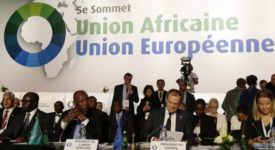The European Women’s Lobby (EWL) has recently published a report showing that the most effective way to increase the number of women in leadership positions including company boards is via binding legislation. Despite the need for rules, monitoring, interim objectives and sanctions in case of non-compliance, the gender-friendly legislation has been stuck for months in the European Council. “Europe as a whole is dragging its feet and making progress that is all too slow,” said Joanna Maycock, EWL Secretary-General. “There is a growing frustration about the fact that we seem stuck in inequality,” she added.
Gender equality is one of the EU’s founding values, and as such, Brussels has adopted anti-discrimination legislation and complementary strategies to support it. In November 2012, Viviane Reding, then Justice Commissioner, proposed a 40 percent quota for women sitting on company boards. The legislation would have applied to publicly traded companies across the block with more than 250 employees or annual revenues exceeding €50 million. The companies would have had time until 2020 to comply or face sanctions.
Although this legislation has been blocked since its proposal, more and more companies have been trying to increase the number of female executives. Since 2010, the number of women on boards has gone up by 7.6 percent. Yet, this figure is still considered low so the Commission is about to prepare a review of the progress made as well as a draft of a new strategy that would reflect the most recent priorities of the gender strategy.
In the run-up to the International Women’s Day on Sunday, March 8, Christine Lagarde, the boss of the International Monetary Fund, has called for gender equality in the workplace. Mrs Lagarde said that it was vital to show to policymakers that gender equality “actually makes economic sense” and that more women in leadership can spark “more growth” and a “more diverse society” that has the potential to be “much more profitable from the global economic point of view.” According to gender non-profits, 2015 is a remarkable year for women’s rights as it commemorates the 20th anniversary of the Beijing Platform for Action, which concluded the Fourth World Conference on Women in September 1995.







